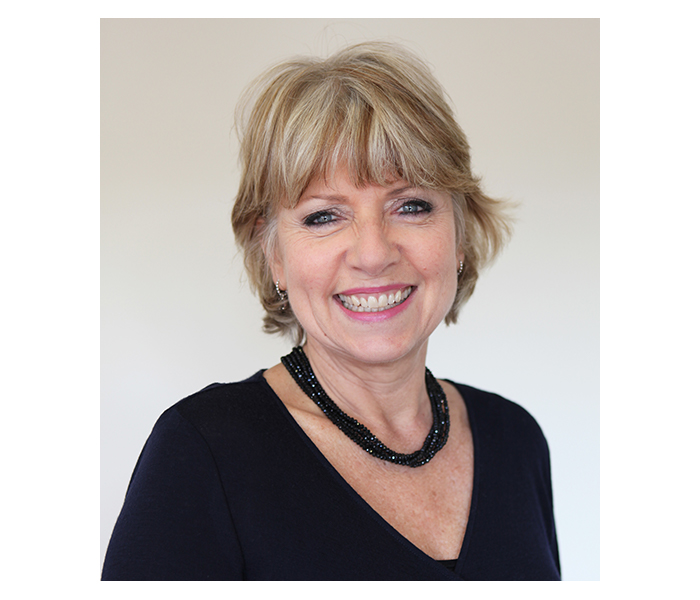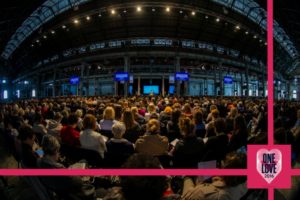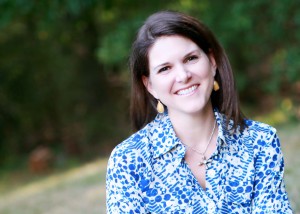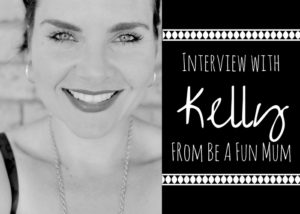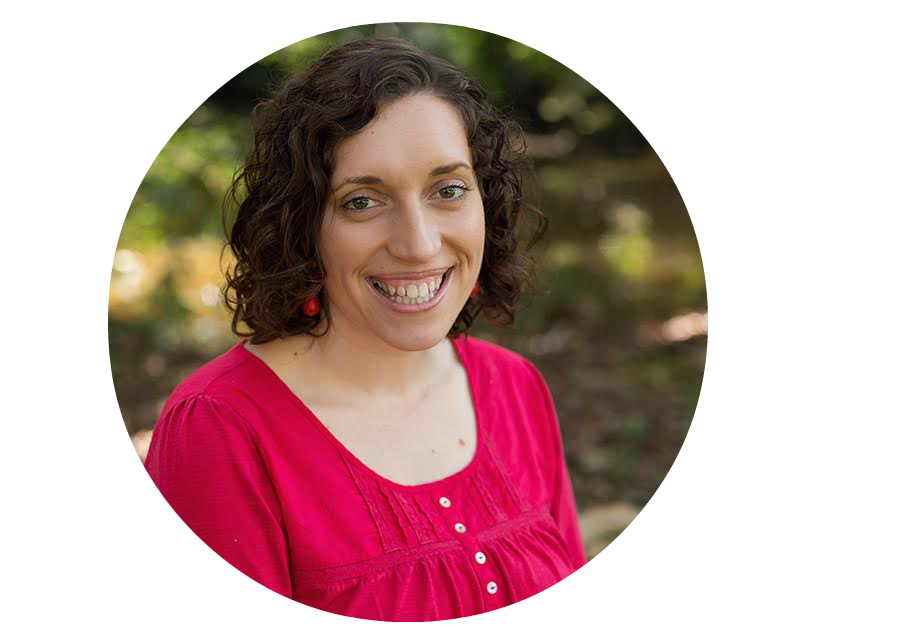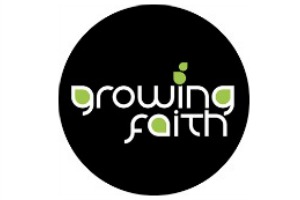Last year, the Northern Rivers in the Far North Coast of NSW held the North Coast Christian Women’s Convention. I was fortunate to be able to grab a coffee with Jenny Salt before she spoke on the book of Ruth and ask her a few questions. I hope you find getting to know her as encouraging as I did!
Hi Jenny. Thank you for taking the time to meet with me this morning. I would love to find out how you came to God?
I grew up in Sydney as part of the generation where it was good to send your kids to Sunday school. Mum and Dad had us all christened in a local Anglican church. So when we moved to St Ives (in Sydney), it seemed the most natural thing to drop us off at the local Anglican church which happened to be Christ Church St Ives a wonderfully Bible-centred, and a Gospel-focused church. That was when I first started to hear from people who were faithfully teaching from the Bible. Children are sponges and maybe it is partly my personality but I was hearing these things and I wasn’t going, “hmmm… I’m not sure if I agree with that”, instead I was hearing who God is, what he had done and I was just taking it all on board.
Because the Church had this really great Sunday School and Youth Group, I was fed through that system and exposed to the wonderful realities of the Gospel as I was being fed the Gospel.
At the same time, I attended the local High School and one of the ministers at Christ church Richard Harvey ran Scripture at my school. It was optional, but I went along with some of my friends and as I heard the teaching, once again I listened, and took it on board. I thought what was being taught all made good sense and seemed logical and rational. I remember Richard explaining that you weren’t a Christian because you went to a Church or were born into a Christian country or because you try to live a good life; instead being a Christian is someone who believes in Jesus, understands who he is and wants to live for him and follow him and understand what he did at the cross. He then asked if anyone wanted to become a Christian. It made sense, and so I prayed ‘the prayer’ there and then, and became a Christian. And because I was a part of a Youth Group where it was all being reinforced, it was wonderfully consistent, I continued to grow and I was discipled in that context.
While my brothers and sister also went ‘through the system, at church, they all dropped off and I was the only one who continued. My mum became a Christian a few years later and it has been wonderful to share our faith in Christ together. I pray for the rest of my family every day.
I am so grateful to Sunday school teachers and Scripture teachers because children are sponges and it is such an opportunity for those who don’t come from Christian homes.
Since then, you went on to do Nursing and then became a Flight Attendant with Qantas. What was your journey moving from that into theological study at Sydney Missionary Bible College?
It was a funny thing really. I was a Christian all the way through, but when I was with Qantas I was in a kind of “cruise control” in terms of my relationship with God. I think though, that as Christians, if we are “cruising”, it is a downward trend. I didn’t ever compromise in the “big” things of life but I think slowly I was compromising in my commitment to the Lord.
At the same time, I was in a serious relationship with someone who held strong religious convictions but convictions that were very different to mine – in terms of assurance of faith and that Jesus Christ is the only way to be saved. This relationship had a huge impact on me as a Christian. By his grace, God wrenched me out of that relationship, much to my heartache, but ultimately it was a good thing. Following that, as I re-evaluated things – there came a point when I started to ask myself some pretty basic but hard-hitting questions. I was between two churches at the time and so I asked myself, “Are you a Christian?… Yes I am. Are you wanting to keep growing as a Christian?… Yes. Are you growing as a Christian? … No.”
I started meeting with some friends and for about a year we prayed together once a month asking God to direct us. We were all at a crossroads, in different ways. I expected that now that I was back “on track”, the Lord would give me some blinding revelation. I always felt Bible College wasn’t for me (funny about that), but I was open to whatever God had in store. During that year of praying, a few people suggested Bible College. Most times I more or less dismissed the suggestion. But when one particular person suggested it, I thought maybe it was worth looking into. That’s how I came to be at SMBC.
Nowadays, when I interview people looking at coming to SMBC as part of my role there, some people seem so organized and have been working towards it for a long time. I’m always very impressed by that. But with me, it seemed more of a spur of the moment decision – there was a lot of prayer, but without knowing how God was going to answer those prayers. Looking back I see that the Lord was preparing me for Bible College.
I did two years at SMBC graduating with a Diploma of Theology and then thought I would go back to the workforce. At the end of my course though, David Cook (Principal of SMBC at the time) offered me the position of Dean of Women. I thought he was mad asking me, because I didn’t really have any formal ministry experience, but ended up taking that role, and now twenty years later I am still working at SMBC.
You mentioned you were in a relationship with a ‘religious’ man?
Yes. The fact he was a ‘religious’ man clouded my view at the time. But, if I’m honest, even though he was (and still is) a lovely person and seemed to tick lots of boxes, in the end, I knew it wasn’t right.
As women, we often have a longing for a husband. How do you speak with women who are in this situation?
I know that the Bible is very clear on not marrying a non-Christian. There are many women who are married to non-Christians perhaps because they became a Christian in a non-Christian marriage. But, the bible is very clear that we ought not marry non-Christians if we are Christians. And if that is right, then we ought not even consider going out with a non-Christian. Having done that myself, I know it is very tempting and sometimes in singleness it is so hard to think about a life of no marriage and no children, that it’s like “what is the lesser of the two-evils?” The lesser is marrying a non-Christian; it has to be better than being single.
But God is no man’s (or woman’s) debtor. If he, in his sovereignty has allowed us to be single, I don’t think it is a matter of simply gritting our teeth and being resigned to it. Rather, we need to see it as something useful for the Kingdom and God.
Having a solid biblical theology is very important as we think on these things. For example, in the Old Covenant, singleness was not seen as good. It was actually presented more in the context of judgment. The blessings of God were presented on terms of marriage, family, children and land. They were all very tangible, physical blessings of God. It’s hard to find examples of singleness except in Jeremiah’s case, and you don’t read about childlessness except for when the Lord has closed someone’s womb.
Once we come to the New Covenant, the blessings of God are presented in terms of spiritual realities; every spiritual blessing in Christ (Eph 1). The family of God has now been reconfigured; it is now as Jesus says when asked about his family, “Who is my mother, my brother, my sister? Those who do the will of my Father in heaven.” Jesus says – they are my mother and my brother and my sister. In other words, In Christ, we are part of God’s family.
And Paul presents singleness, not only as a viable option, but actually as a really positive one. So, I think, the scriptures are very clear about singleness in terms of the new covenant reality – that it isn’t a punishment or a curse, it isn’t something that we ought to grit our teeth and bear it and grumble about; it is actually extremely and wonderfully useful for the Kingdom, just as marriage is.
Regarding marrying non-Christians – At the end of 1 Corinthians 7, Paul talks about widows and re-marriage and he says, ‘as for widows, you are free to remarry, however he must be in the Lord.’ In addressing widows, Paul was speaking to the one category of women who had a choice in whom they remarry. For women who have a choice then, as to who they will marry, we can apply this same principle- he must be in the Lord; a believer. We need to be clear on this.
Therefore, dating (and by that I mean – considering a romantic relationship with the possibility of marriage), in my opinion – non-Christians are a no-go. We need to have a good biblical theology of singleness and marriage, so that we don’t just bear it and put up with it; instead we see it as a wonderful place to be used by God. Even though there are things that are hard about it- (and these can vary from person to person) loneliness, having no children and the grieving that comes with it. But, it doesn’t mean God isn’t good.
Sometimes, I hear women who have struggled with singleness and then they get married and the cry of their hearts is “God is good.” And I think, “Yes, he is good. But he didn’t cease to be good when you weren’t married.” I want the cry of our hearts, whatever our context, whatever the situation is, is to be “God is good. He is good when we are married. He is good when we are single.” Having a clear framework about scripture and God- his character, his ways, his promises enables us to trust him in whatever circumstances he gives us.
Sometimes I think of the promises of God like a trapeze net. Watching a trapeze artist – It looks pretty scary as they fly through the air, it looks dangerous – it’s something that I would never do. But actually, there is that net that holds them and gives and gives and will never let you fall. The truths of scripture and God’s promises are like that- all the threads that run through God’s Word that hold us. We have to have a right view of God and his Word so that we don’t feel worried that we are going to fall and crash or that we need to cling on to that which is not good or helpful.
As you travel around and talk with women, what do you think are some of the biggest concerns for women in the Church in Australia?
Obviously issues of singleness and marriage. But I also think issues of security are big for women- where do we find our security, which is why women who are single find it hard because relationships represent security. I also think identity for women is hard because so much of it is bound up in what we do. Society too, tells women we can have it all- career, relationship, life is about you– you are the most important person. It is so easy to swallow that and then when life doesn’t deliver what it is supposed to deliver we feel disappointed. If life is all about me, then when things aren’t working for me, we need to get out of it and find what does work for me. This is what the world tells us.
Having a solid foundation in our walk with Christ is so important- reading the word of God daily is a priority for me, because it is so easy for our hearts and minds to get out of whack. A friend of mine was undergoing radiotherapy last year and she had 6 weeks of daily radiotherapy treatments and then two extra days tacked on at the end. This was because there were two days when the machine had to be recalibrated because it has to be so precise where the beam was on her body. The machine had to be recalibrated, as it is too dangerous if it gets even the slightest bit out of alignment.
This makes me think about our hearts and minds-they need to be recalibrated. But not just every 6 weeks. It needs it every day. We so easily get out of whack and we need to recalibrate; we need to be thinking rightly, breathing in the Words and wisdom of God daily, saturating ourselves in it so that when the world says, ‘you can have it all.’ we read that in the context of God’s word, we ‘we do have it all, in Christ. Our minds need to be recalibrated to stop us envying, coveting, being jealous, resenting and feeling like we are missing out. The Word of God recalibrates our hearts and minds. It is something that I know I need – the word of God recalibrating, realigning my heart and mind and this helps us see that the greatest joy is when we are living in line with God’s ways, enjoying him and living for him, whatever the circumstances.

